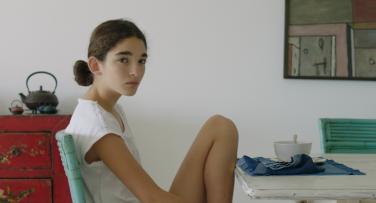
Kékszakállú, Gastón Solnicki, Argentina, 2016, 72’, OV with Spanish subtitles, DCP
Teenagers and young people in the Punta del Este summer, in the streets of Buenos Aires, trapped on the threshold of adulthood, in their bodies, in their looks and acts, as if something very important and fundamental for their lives were about to happen. Freely inspired in Bela Bartok’s Hungarian opera, Bluebeard’s Castle, the film won the FIPRESCI International Critics Award and the young critics Golden Bistato award at Venice last year.
All of this can be defined as a film of portraits: the framing and photography are excellent. As is the light. As is the tone of mystery, since it is all about trying to discern what is happening within, what those characters are feeling inside. There is one storyline that can serve as an initial base: a story of love and of love going sour, and a story of the search for work and a future. But the important thing lies precisely in the fringes of these stories, and has more to do with the almost invisible tragedy brought by the music of Bartok’s opera; a hypnotic film; yes, it is light and heavy at the same time, it is portrait of the Argentinean upper class and how it crumbles, almost a musical without dances or songs, very Austro-Hungarian, and extremely elegant.
Four years ago I spent an entire summer under the spell of Bartok’s only opera. Bartok travelled across Eastern Europe with a phonograph, a few years before the outbreak of the First World War, soaking up the oral tradition of peasant music, then writing his works from such material. In this sense, Kékszakállu is a tribute to Bartok and his travels. We shot the first part of the film with a very closely-knit group of friends and colleagues, with no script, no characters. With nothing but the premise of Bartok in Punta del Este. A constellation of stars all close to home, fraught with cinematographic possibilities. That’s how the actresses and driving pillars of the film began to appear. There is a very beautiful idea in Fritz Lang’s Blue Beard (Secret Beyond the Door, 1947), about how certain types of architecture can lead one to commit murder”.
Freely inspired in Bela Bartok’s Hungarian opera, Bluebeard’s Castle, the film won the FIPRESCI International Critics Award and the young critics Golden Bistato award at Venice last year.
